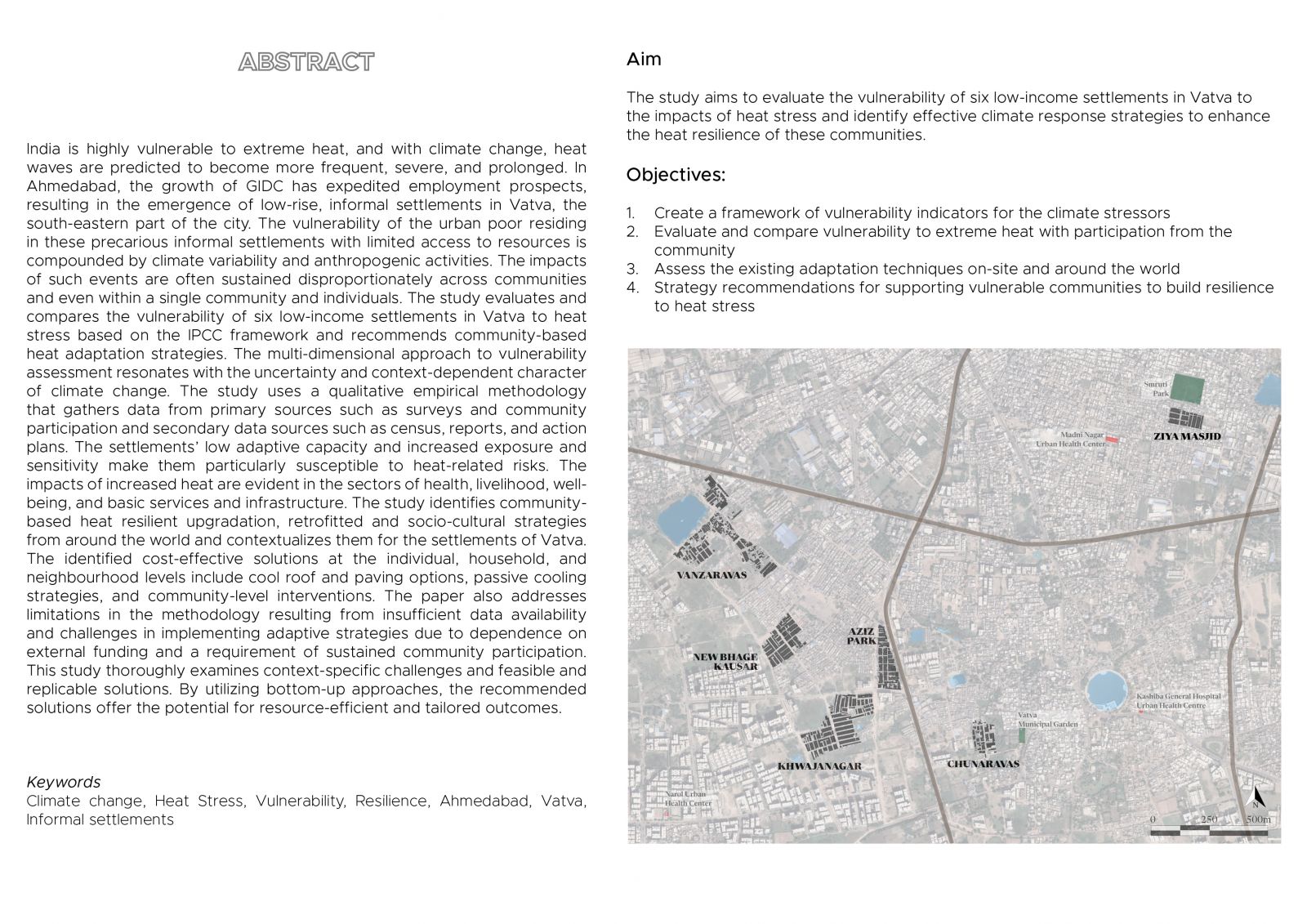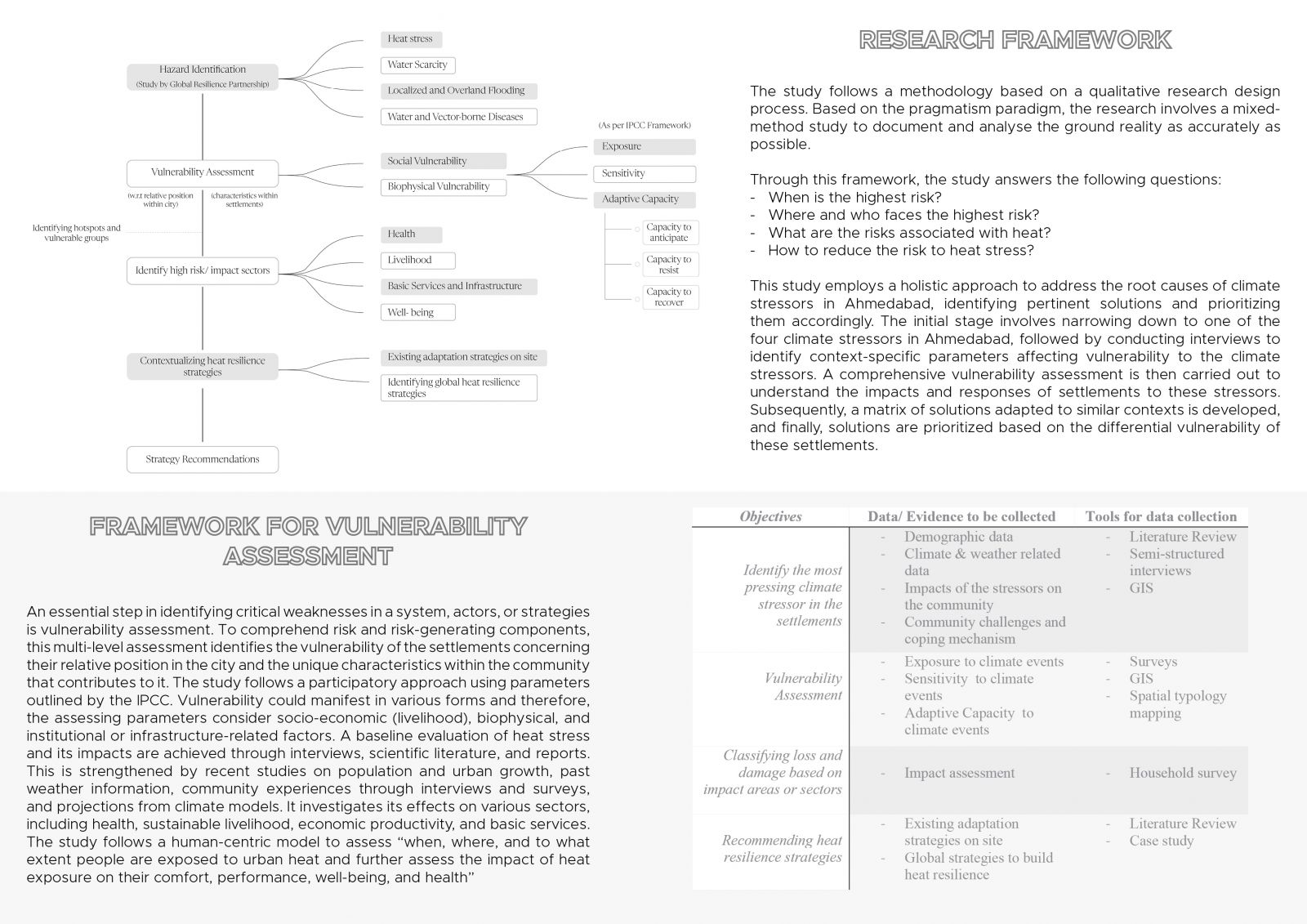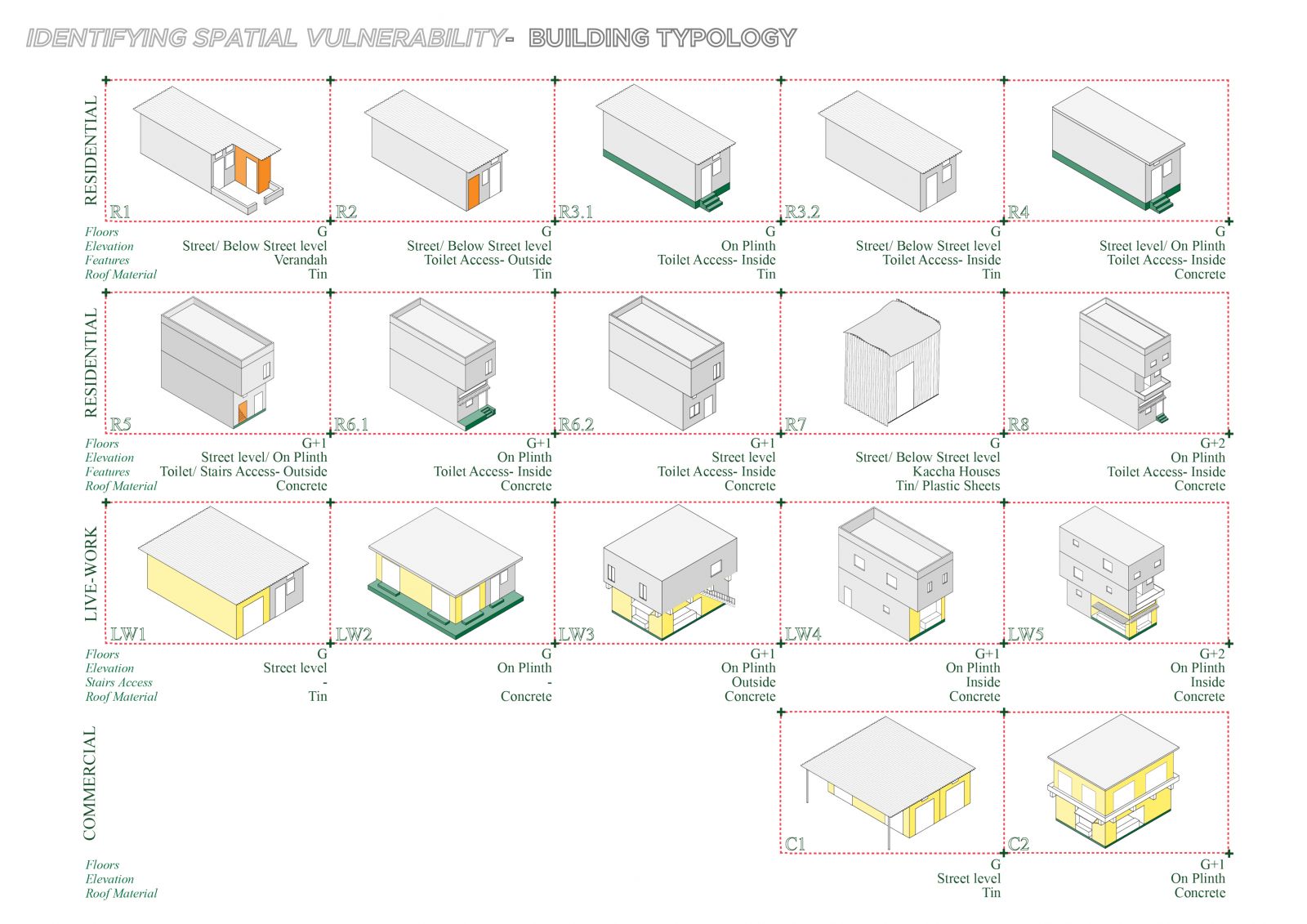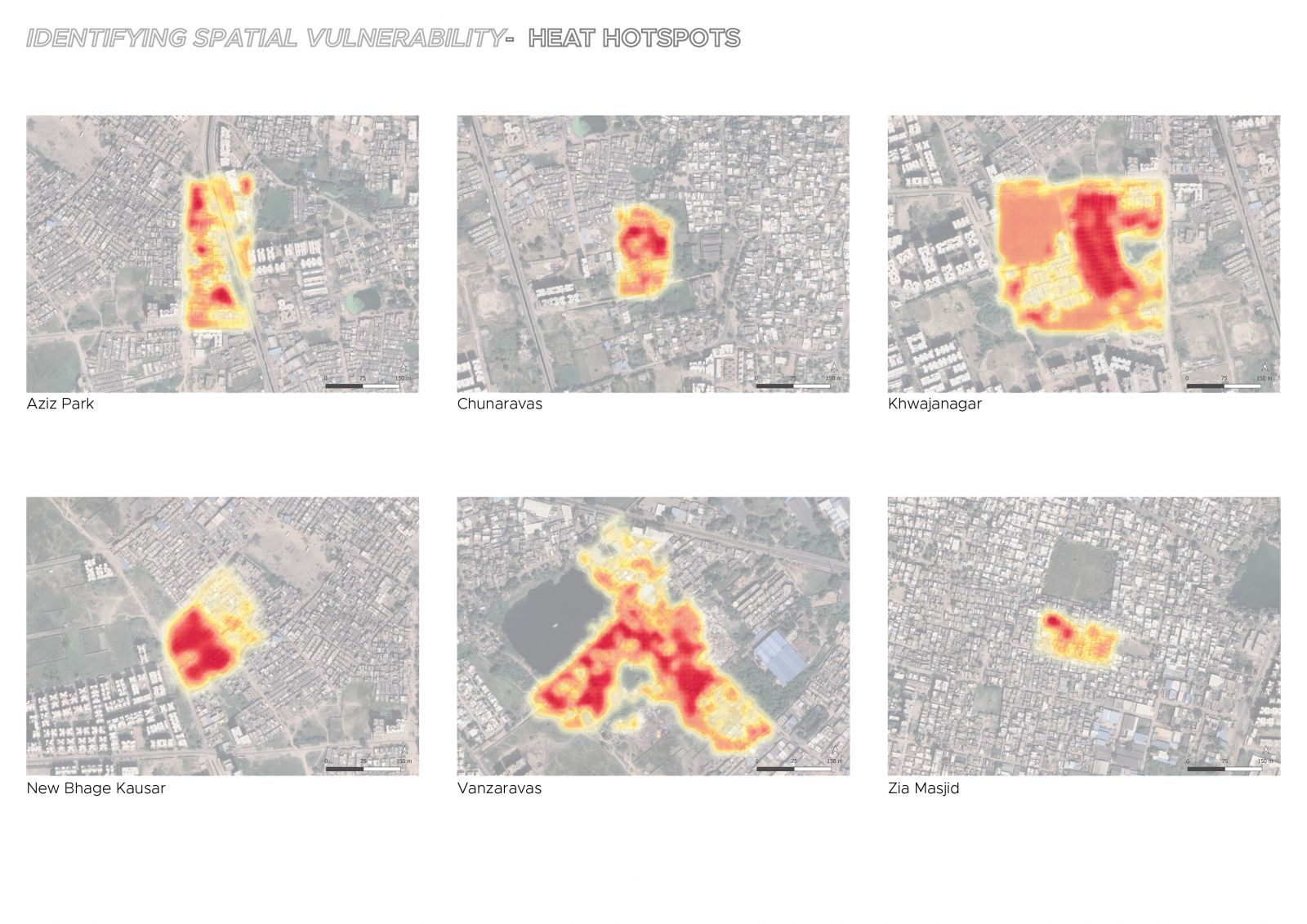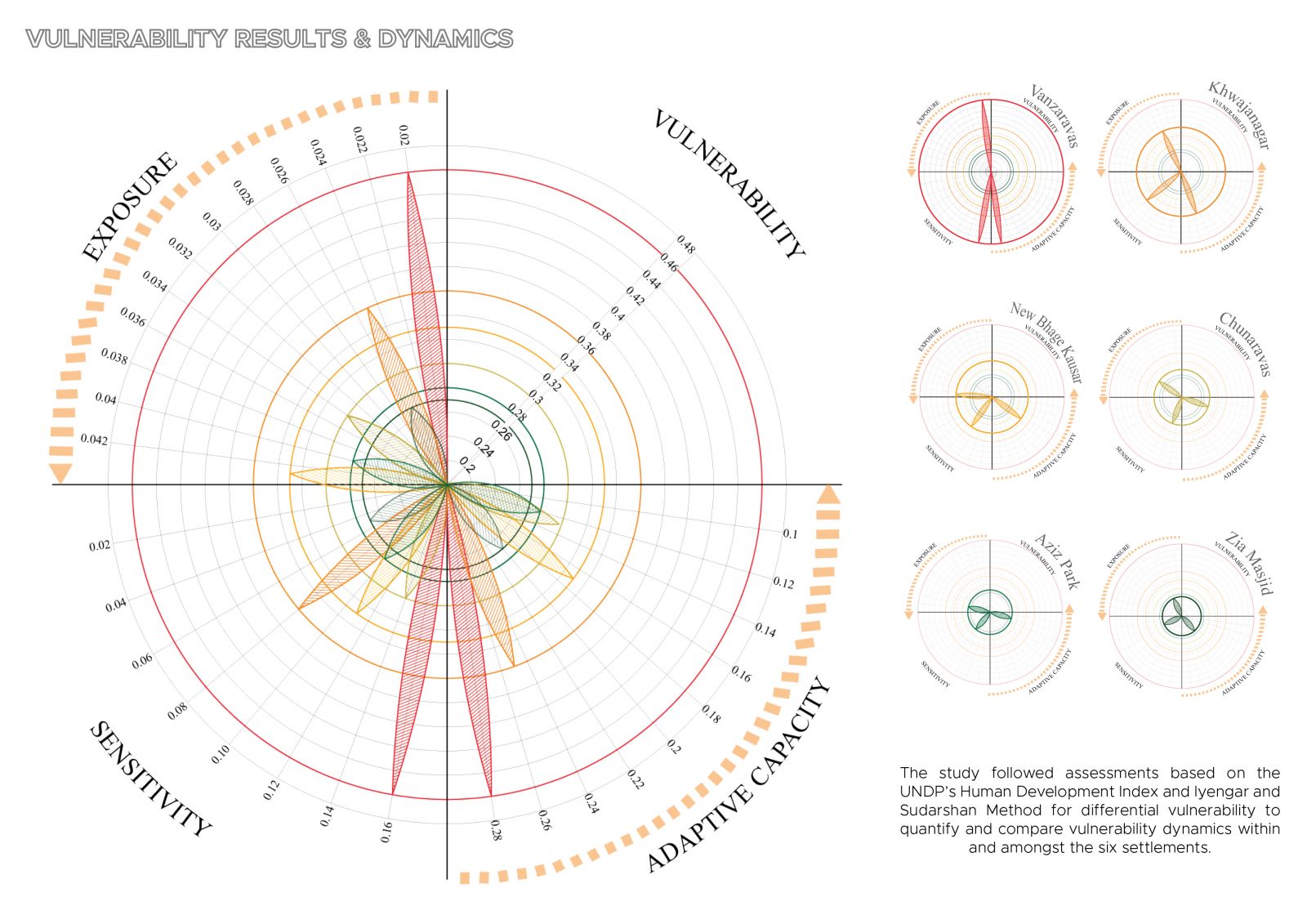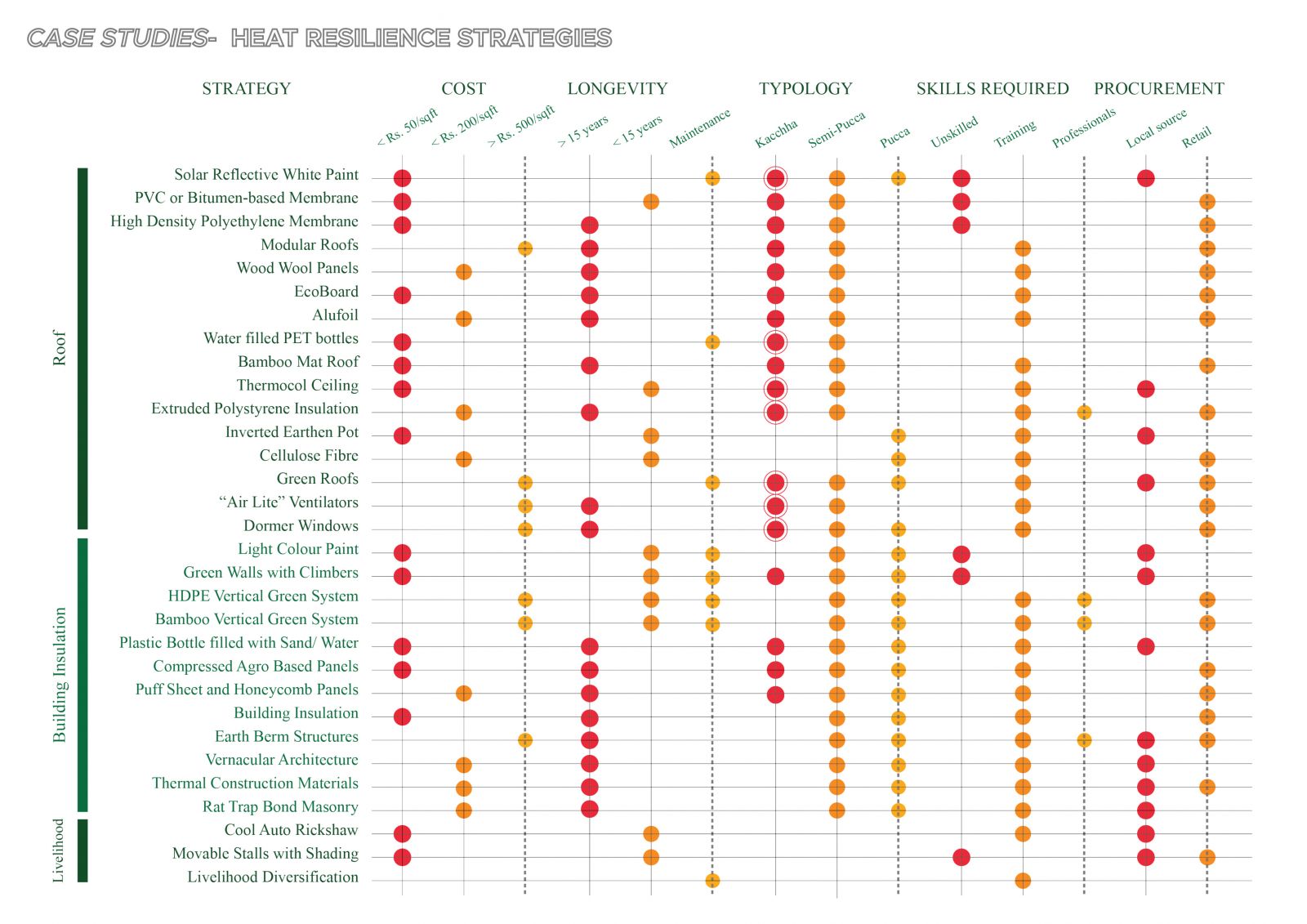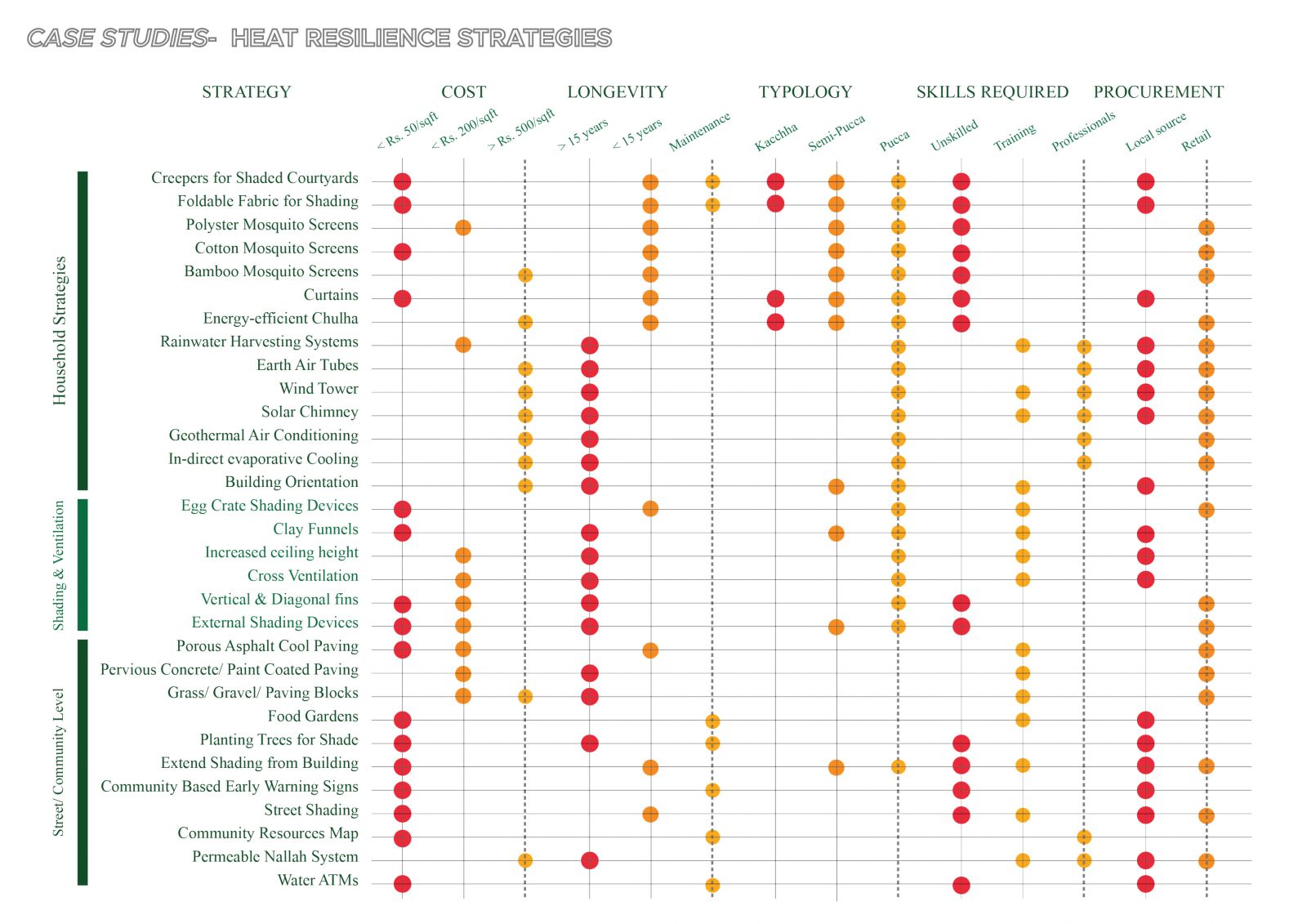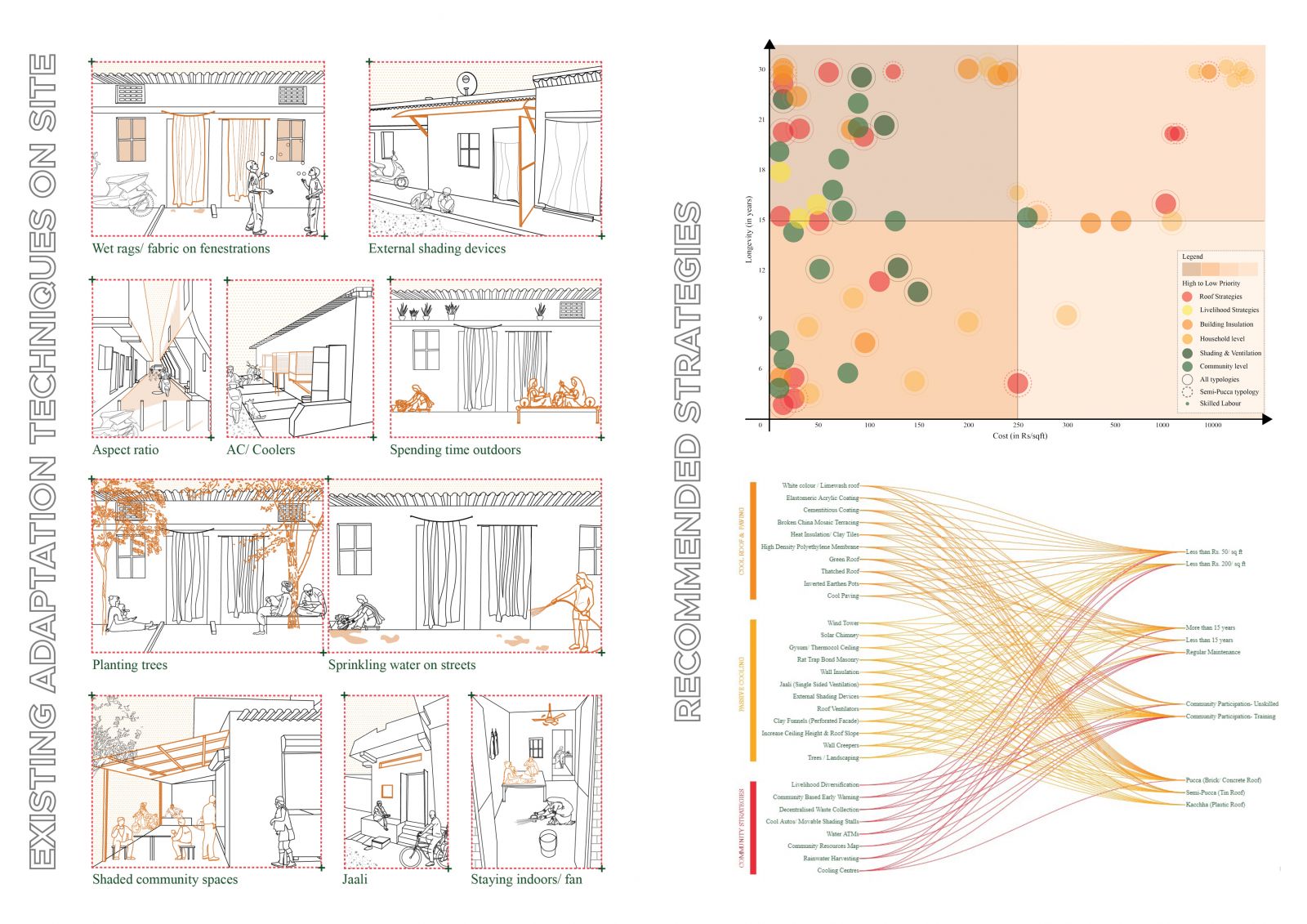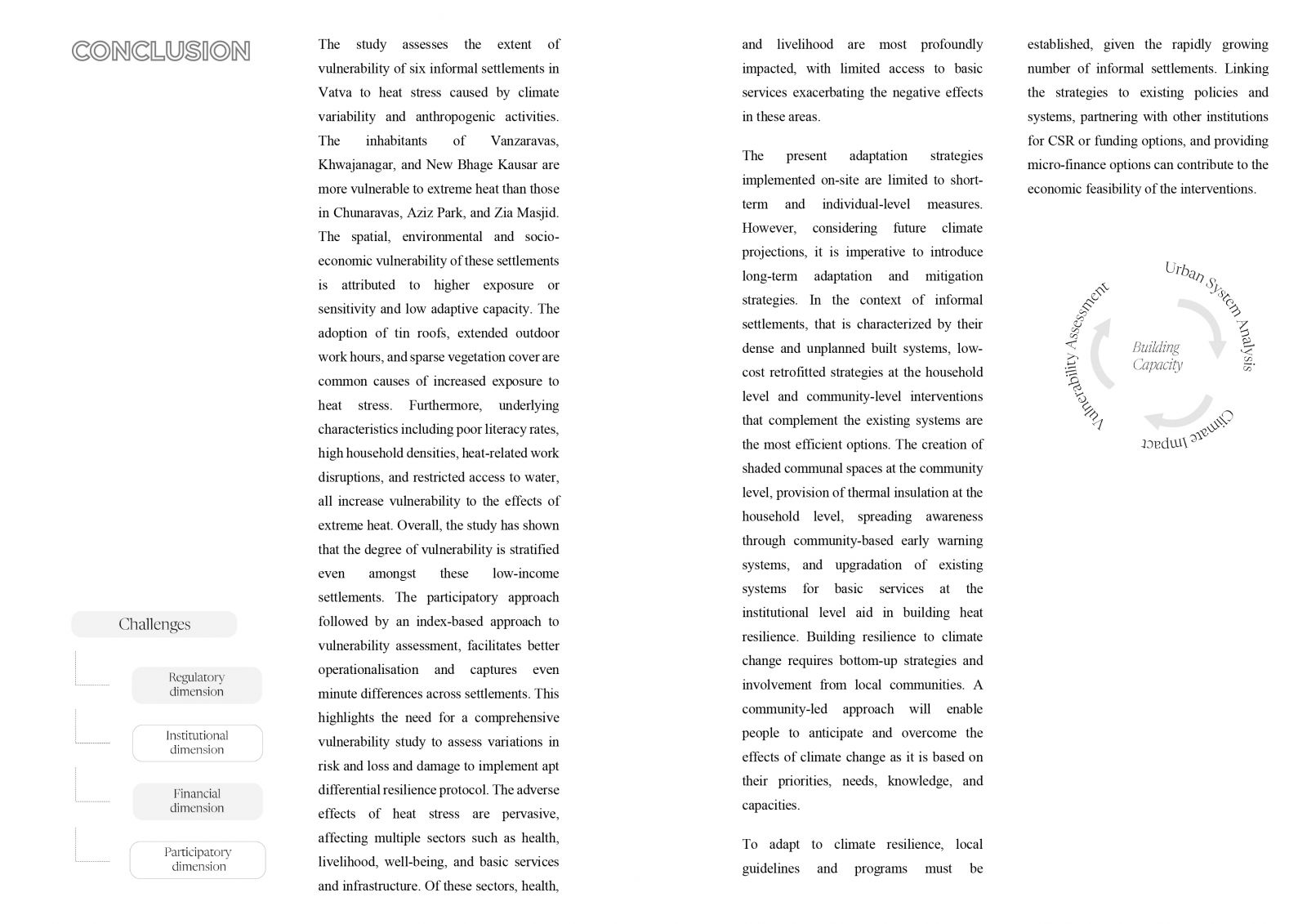Your browser is out-of-date!
For a richer surfing experience on our website, please update your browser. Update my browser now!
For a richer surfing experience on our website, please update your browser. Update my browser now!
The study evaluates and compares the vulnerability of six low-income settlements in Vatva to heat stress based on the IPCC framework and recommends community-based heat resilience strategies. The multi-dimensional approach to vulnerability assessment resonates with the uncertainty and context-dependent character of climate change. The study uses a qualitative empirical methodology that gathers data from primary sources such as surveys and community participation and secondary data sources such as census, reports, and action plans. The settlements' low adaptive capacity and increased exposure and sensitivity make them particularly susceptible to heat-related risks. The impacts of increased heat are evident in the sectors of health, livelihood, well-being, and basic services and infrastructure. The study identifies community-based heat resilient upgradation, retrofitted and socio-cultural strategies from around the world and contextualizes them for the settlements of Vatva. The identified cost-effective solutions at the individual, household, and neighbourhood levels include cool roof and paving options, passive cooling strategies, and community-level interventions.
View Additional Work